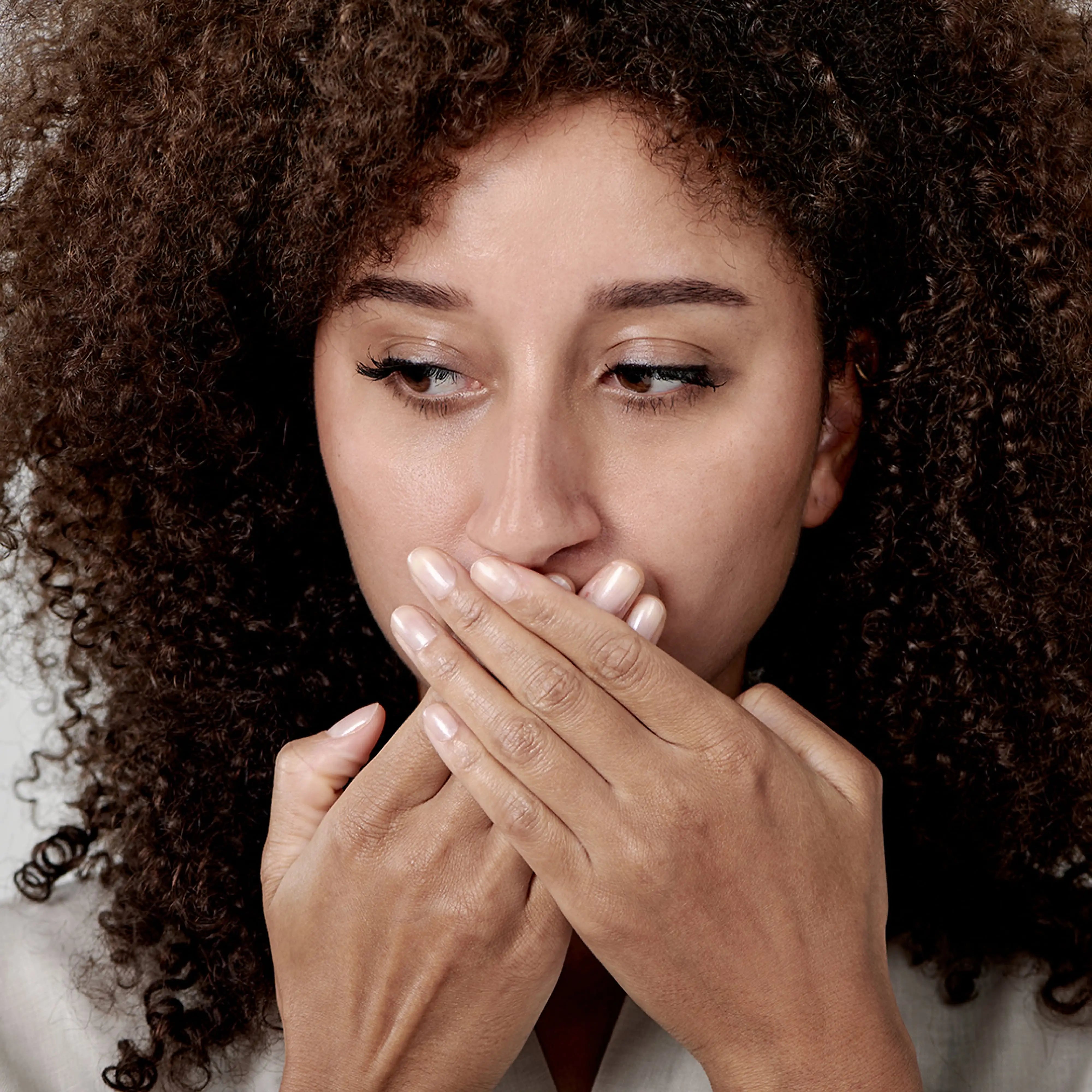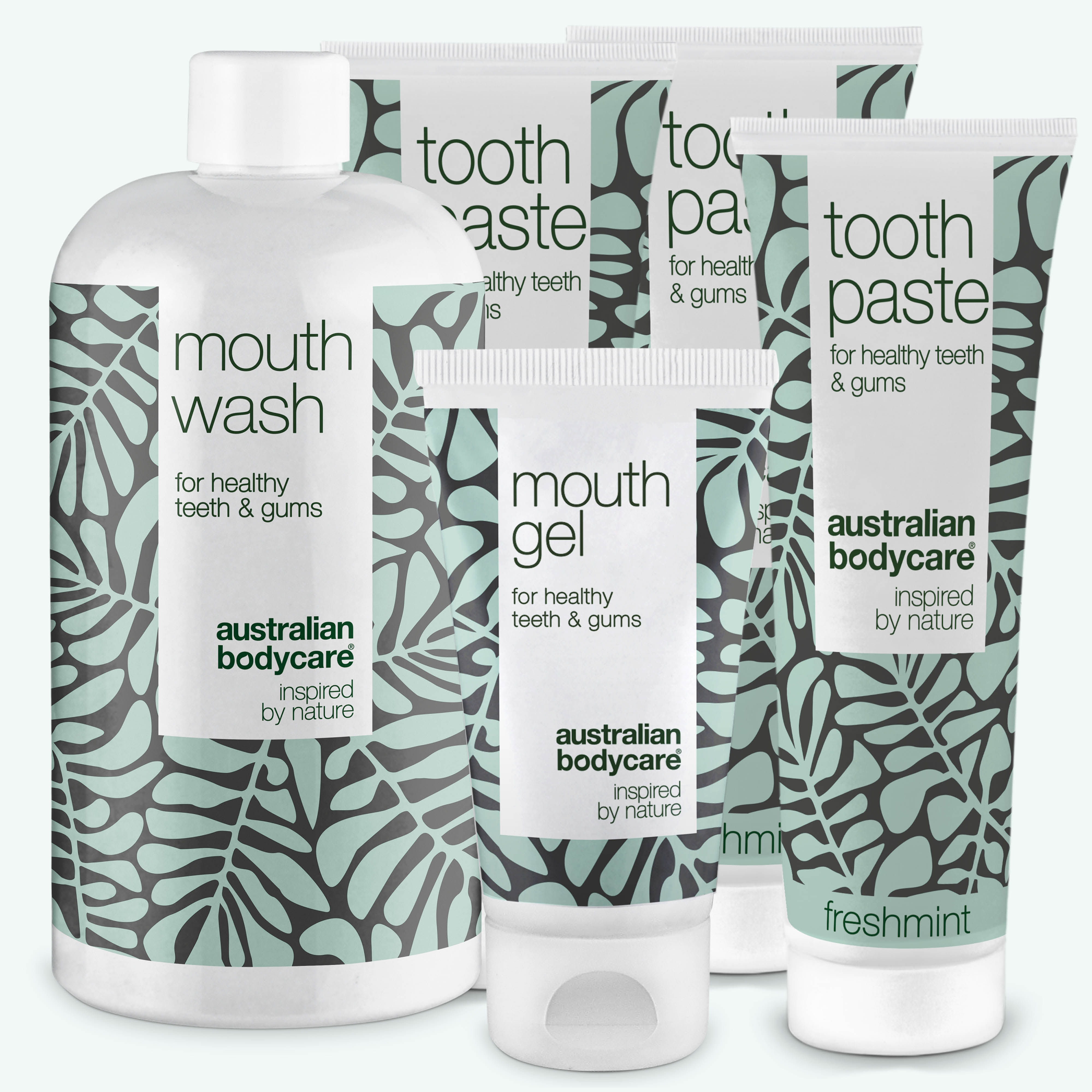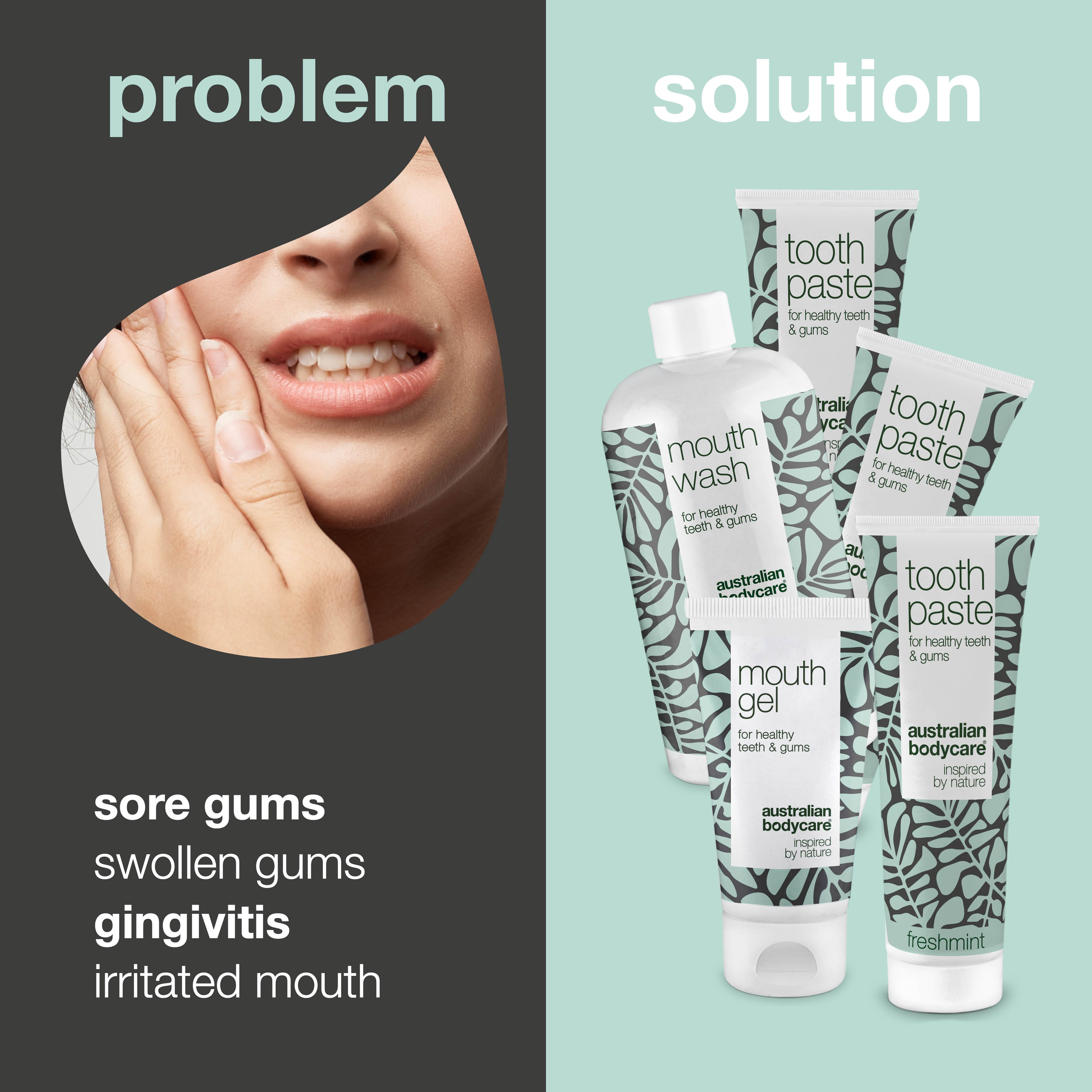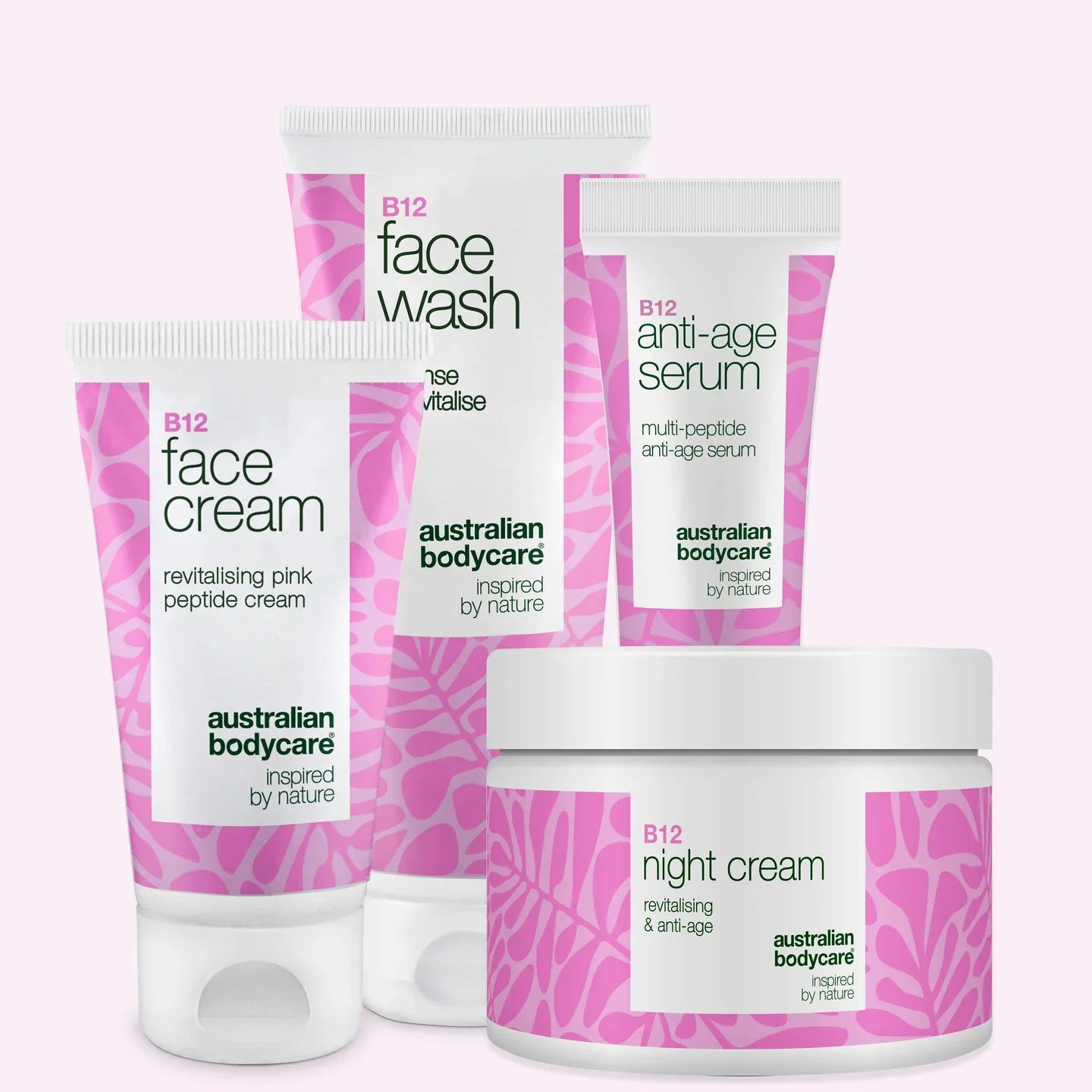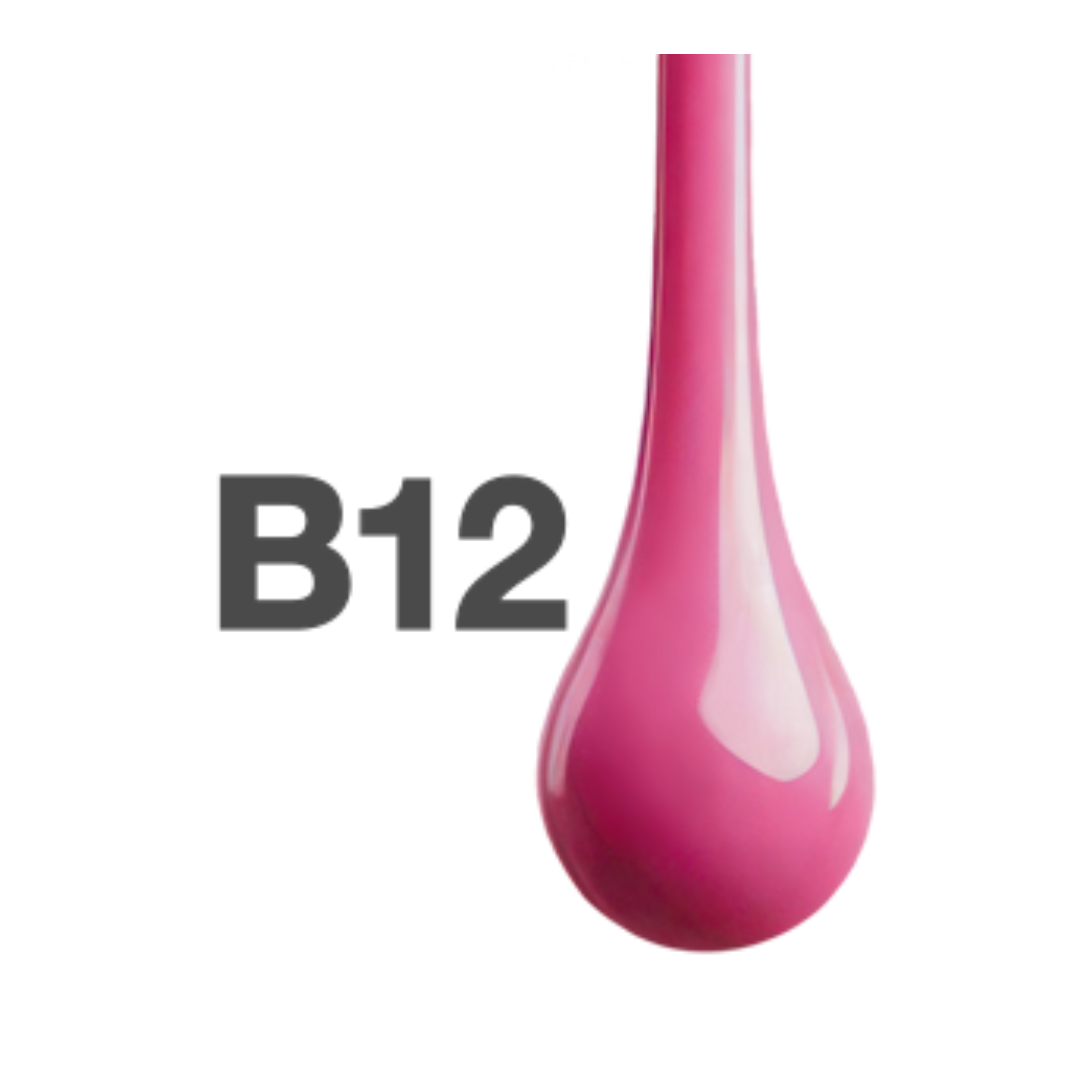Swollen gums – what to do about them
Swollen gums are a problem many people suffer from. They are not merely irritating – they can be very painful. Gums may become swollen for several reasons. In this article we give some advice about how they can become healthy again.
Table of contents
What are swollen gums?
It is quite normal for gums to become irritated. It may be a sign that you should brush your teeth extra thoroughly and make a little more effort with oral hygiene, or that stiff bristles on your new toothbrush have irritated your gums.
One thing is certain, however: if your gums are swollen, it is a sign that your gums are irritated.
You will probably discover it because the gums are tender, or that they bleed when you brush your teeth. You will also be able to see that your gums are dark red rather than pink. Clean, healthy gums are pink, and not at all tender, while irritated gums are a dark red colour and tender.
You should not ignore tender, swollen gums
If your gums are swollen, it may be a sign of early gingivitis. It is therefore important to keep a careful eye on it.
At worst, irritated gums can lead to periodontal disease. If you cannot deal with swollen gums by yourself, it is therefore a good idea to ask your dentist for advice.
Swollen gums – what can you do?
The very best treatment for swollen gums is good oral hygiene.
Even though you are already conscientious about brushing your teeth morning and evening, more may be needed to keep your mouth clean and your gums healthy. With Australian Bodycare oral starter pack you will have everything you need to deal with tender, swollen gums.
Besides pleasant-tasting toothpaste with Tea Tree Oil the pack contains a Mouthwash and Mouth Gel. With the starter pack in your bathroom cabinet, you are ready to combat swollen and irritated gums, oral bacteria and bad breath.
Good dental hygiene step by step
Here is our best advice for some good routines, which will ensure your mouth is healthy.
- Clean your teeth thoroughly every morning and evening. Aim for the famous two minutes every time you brush your teeth. This increases your chances of going all the way round your mouth, and brushing each tooth thoroughly enough.
- Use dental floss. It is difficult for your toothbrush to reach all the traces of food that may be stuck between your teeth.
- Rinse your mouth thoroughly with a good mouthwash. Mouthwash prevents bad breath and also helps fight bacteria in your mouth and gums. Mouthwash can be used throughout the day after eating or drinking.".
- Ideally, finish off with a mouth gel. If your gums are already irritated and tender, you will benefit greatly from a good mouth gel. It soothes and cares for your gums – and at the same time keeps bacteria away from your mouth.
Causes of swollen gums near one tooth
Are your gums swollen around one particular tooth? Then that is where you should make a special effort.
There may be something like a small breadcrumb or a popcorn shell stuck in one of the tiny pockets between each tooth and the gum. This can cause a small local swelling of the gum.
If a new tooth is about to break through, for example a wisdom tooth, that may also be the reason for swollen gums around a single tooth.
In the great majority of cases extra care about general oral hygiene and cleaning that particular tooth will be sufficient.
What causes swollen gums in your mouth?
Poor oral hygiene is one of the most frequent causes of irritated gums.
If you do not brush your teeth thoroughly enough or cleanse your mouth sufficiently, bacteria can settle on your gums, so they will easily swell and change colour. Swollen gums may be very tender, and also tend to bleed easily when you brush them or use dental floss.
However, there may be other reasons why you have problems with your gums. It may be a side effect of taking medication, or it may occur in women in connection with hormonal changes, such as during pregnancy or the menopause.
Are your gums swollen? Then focus on good oral hygiene
Although your gums can easily become irritated, it is just as easy, as a rule, to get rid of the irritation – by taking the right action, naturally.
The most important thing is oral hygiene. Brush your teeth a little more thoroughly, and perhaps an extra time each day, if you can. If you are not used to using dental floss or a mouthwash, it may be wise to get into the habit of doing so.
Not only will it help you to deal with your swollen gums; it can also prevent the same problem from arising again later.

